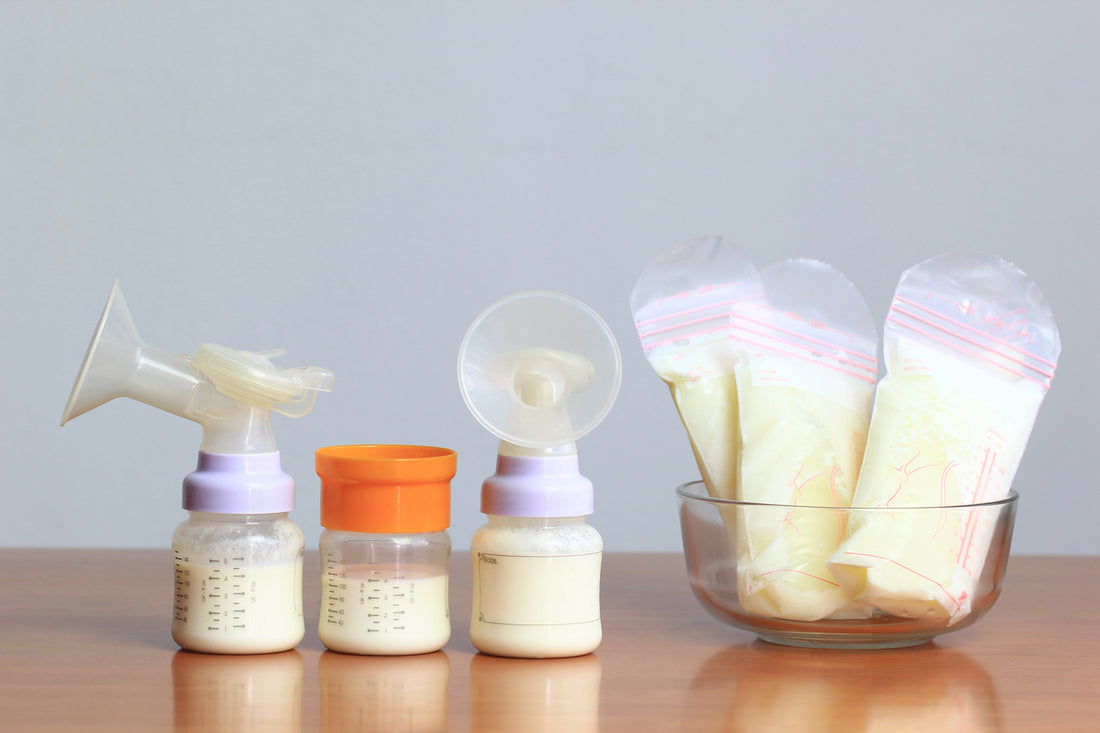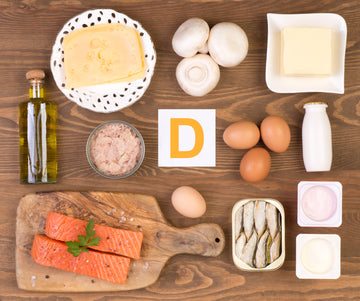Boosting Your Breastmilk Supply

So many people will tell you to just add *ABC* to your diet to increase your breastmilk supply, but by just adding in milk-boosting foods, you may not see a huge difference. Make sure to also include the following to boost the quality of your milk as well:
- Enough calories – breastfeeding takes an added 300-500 calories a day, especially if you are nursing on demand. Instead of counting calories, eat when you are hungry and make healthy choices.
- Enough carbs –Not the processed, boxed kind of carbohydrates, but instead, eat a lot of baked potatoes, slathered with real, rich butter (if you can eat dairy), bananas, sweet potatoes, carrots, etc.
- Healthy fats – breastfeeding is not a time for a low-fat diet (actually, there’s never really a time for that because fat is not the enemy – good fats and good for you!) Nursing moms need plenty of real fats, butter (or ghee), cheese (unless avoiding dairy), fish, meat, coconut oil, etc.
- Lose the simple sugars – nobody needs white sugar, white flour, and corn syrup.
- Lose the processed foods – they are full of chemicals and non-food items that can wreak havoc on the body, not to mention drop your milk supply.
There are many food options to help you boost your milk supply. Eating these items raw or in recipes as often as possible should have you making more milk in no time! Remember to contact a lactation consultant and visit your local la leche league regularly for support and advice.

Foods to Include While Boosting Your Milk Supply
- Oatmeal (or oats): the most recommended food to boost supply!
- Almonds
- Quinoa
- Garlic
- Ginger
- Beet leaves
- Kale
- Dark leafy greens
- Flax seed
- Alfalfa
- Anise
- Barley
- Blessed Thistle
- Brewer’s Yeast
- Fenugreek
- Fennel and Fennel Seed
- Goat’s Rue
- Hops (A good dark beer!)
- Marshmallow Root
- Milk Thistle
- Nettle
- Red Raspberry Leaf
- Beets
- Yams
- Other Vegetables high in beta-carotene
- Pineapple
- Spinach
- Carrots
- Hummus
- Asparagus
- Brown rice
- Apricots
- Salmon
- Spinach is a good source of calcium, iron, Vitamin K, A, and folate. Folate is particularly important for women who are pregnant or breastfeeding. Dark leafy green vegetables like spinach also contain phytoestrogens. Phytoestrogens are believed to promote breast tissue health and lactation.
- Carrots are a lesser known breastmilk booster, but like spinach, they contain phytoestrogens. Carrots are also high in beta-carotene and Vitamin A, both of which lactating mothers have an increased need for. Carrot juice is especially great for breastfeeding moms. It is believed to provide extra energy needed by lactating women, and it may improve the supply and quality of breast milk.
- Hummus is made of legumes such as chickpeas, lentils, lima beans, or green beans, which are frequently used in lactation boosting recipes. Hummus, which is traditionally made from chickpeas, tahini, garlic, lemon juice, and olive oil, is a perfect snack for breastfeeding moms. It is a complete protein, and the combination of chickpeas and garlic makes this nutrient dense snack, a top choice for nursing moms.
- Asparagus is high in fiber, folic acid, Vitamins A, C, and K. It is a power-house food for nursing mothers. Asparagus contain phytoestrogens, but it also contains tryptophan, an essential amino acid which may stimulate prolactin (a major hormone involved in lactation) production and subsequently improve milk supply
- Brown Rice is another whole grain (like oatmeal) that can be linked to increased breastmilk supply. Brown rice is unprocessed rice with just the outer-most hull removed. It’s a complex carbohydrate, which provides mom with energy needed for breastfeeding, but it also helps with milk production in another way. Researchers have discovered that eating brown rice may cause an increase in serotonin levels in the brain. Serotonin is a neurotransmitter that helps regulate your moods, appetite, and sleep, but it also stimulates prolactin secretion. Prolactin, as mentioned earlier, is a key hormone involved in lactation.
- Apricots (especially dried apricots) contain phytoestrogens which help to balance the hormones involved in lactation. They are high in fiber, Vitamin A, C, potassium and calcium. Calcium-rich dried fruits like figs, apricots, and dates are thought to help with milk production.
- Salmon is a great source of essential fatty acids and omega-3 fatty acids. EFAs and Omega-3 fatty acids are known to give your milk supply a boost.
- Brewer's yeast, most commonly known for its use in the production of beer, contains iron, protein, B vitamins, chromium, selenium and various other trace minerals. Not only does it promote milk supply, it is believed to help with fatigue and the "baby blues."
- Wheat germ is beneficial because it contains zinc, which is a must for breastfeeding. Zinc aids the immune system and even helps to protect cracked nipples, a common occurrence when breastfeeding. Like brewer's yeast, it is also believed to help with postpartum depression.
- Oats are high in fiber and full of iron, protein and complex carbohydrates.
- Flaxseed has good fats and enzymes, which are important for increasing the content of breast milk.
While water is not a food, it is extremely important to understand the significance of staying hydrated while breastfeeding. If you are dehydrated, your milk supply drops. Drink more water or water kefir than usual, consume bone broth, and eat water-heavy foods like grapes, cucumbers, watermelon, etc. to continue to keep everything flowing in your own body and avoid dehydration. Don’t resort to sugary or caffeinated drinks.







